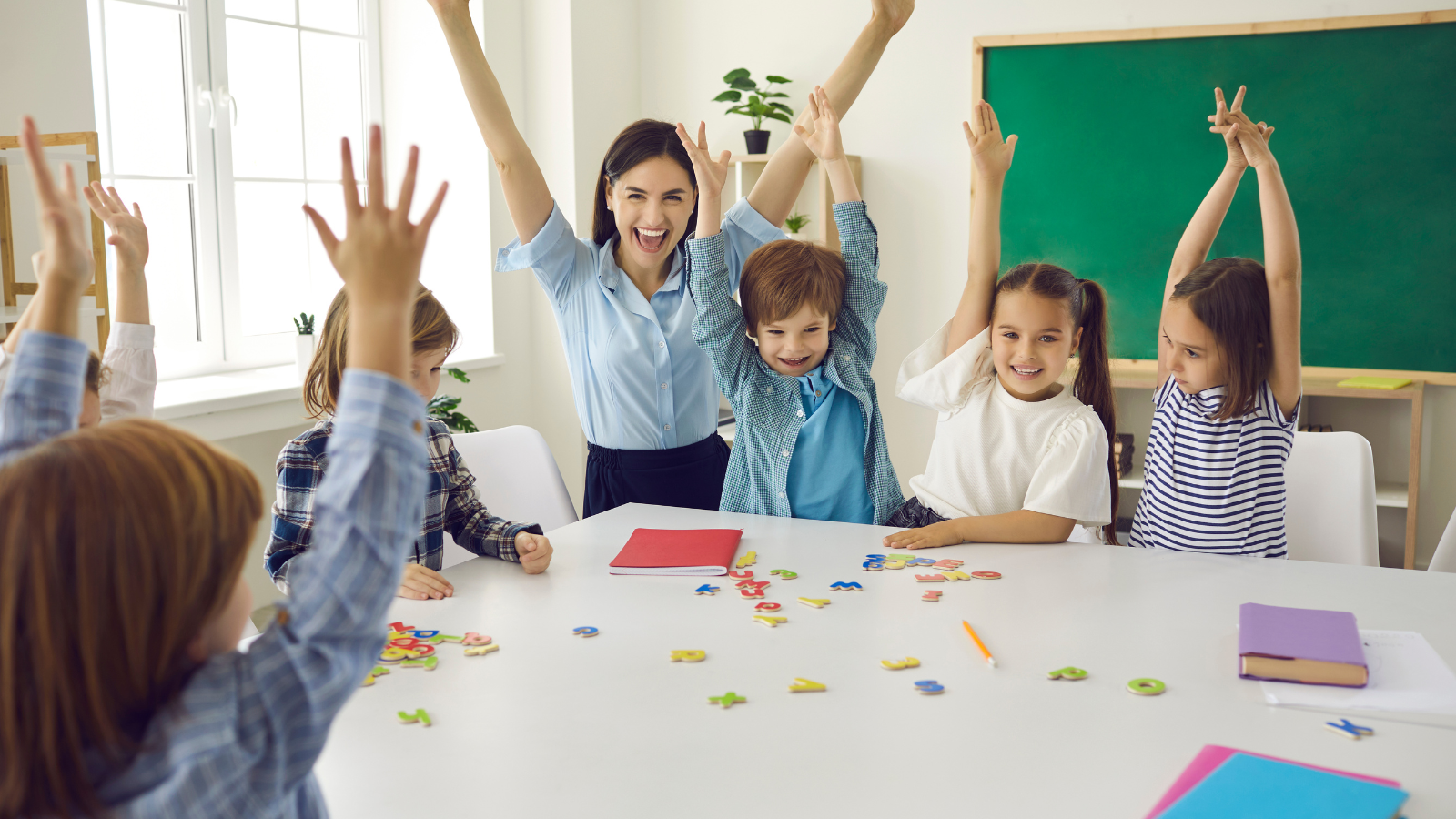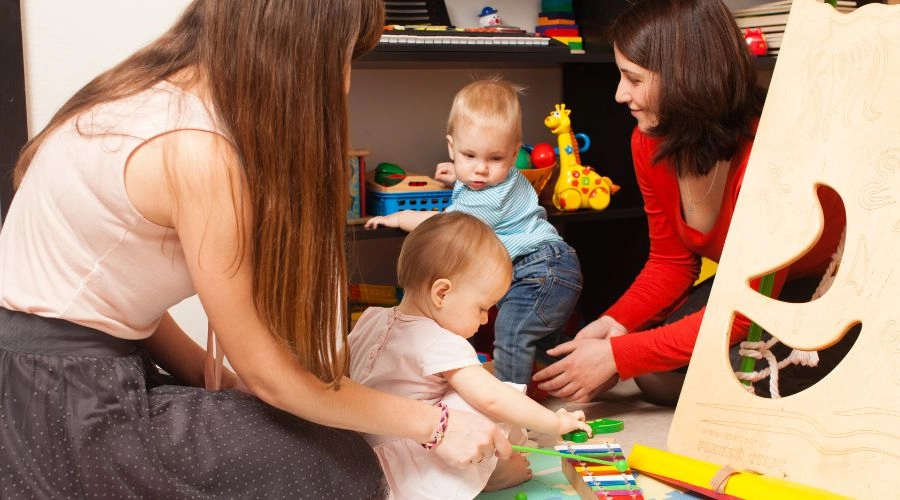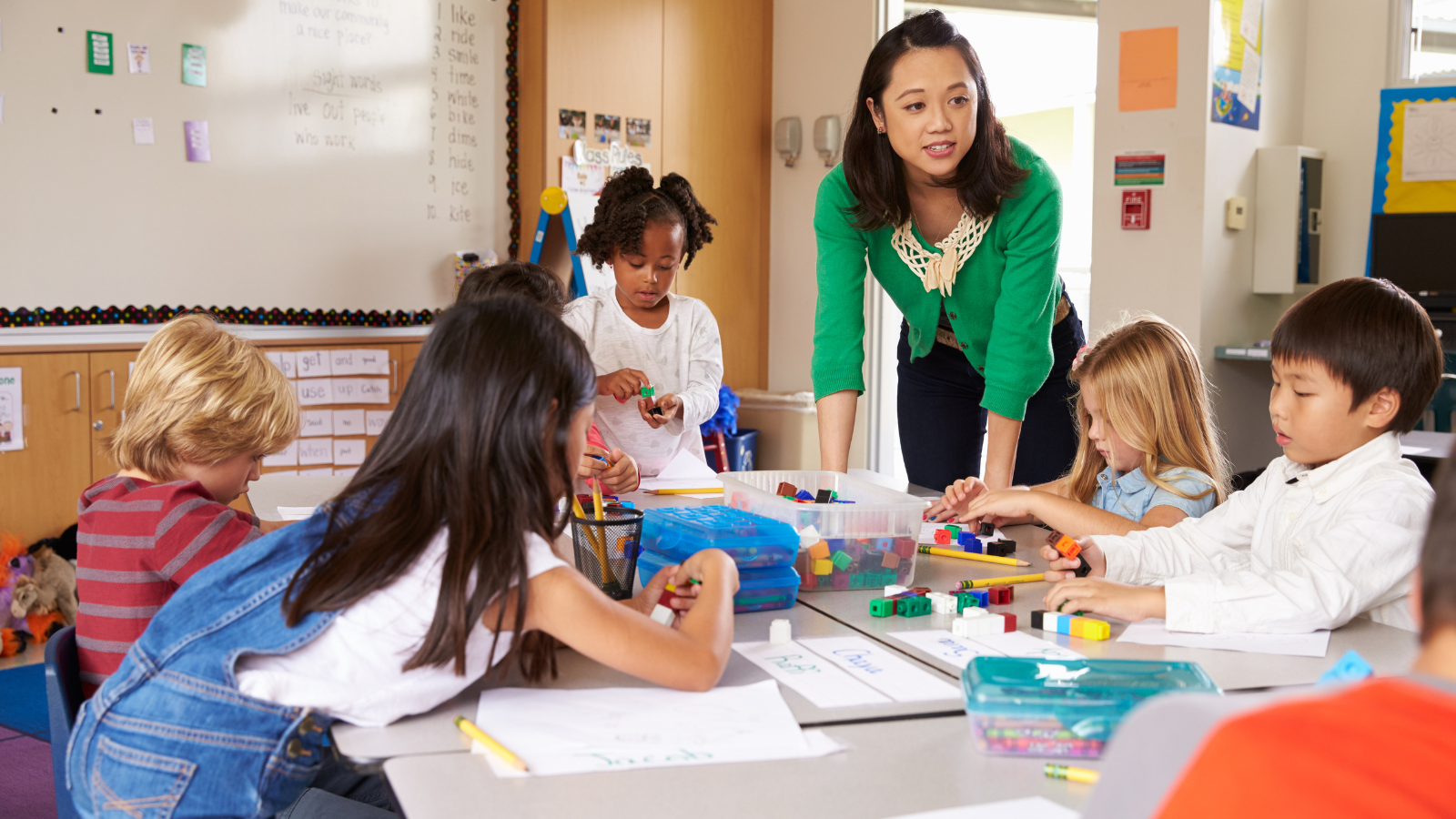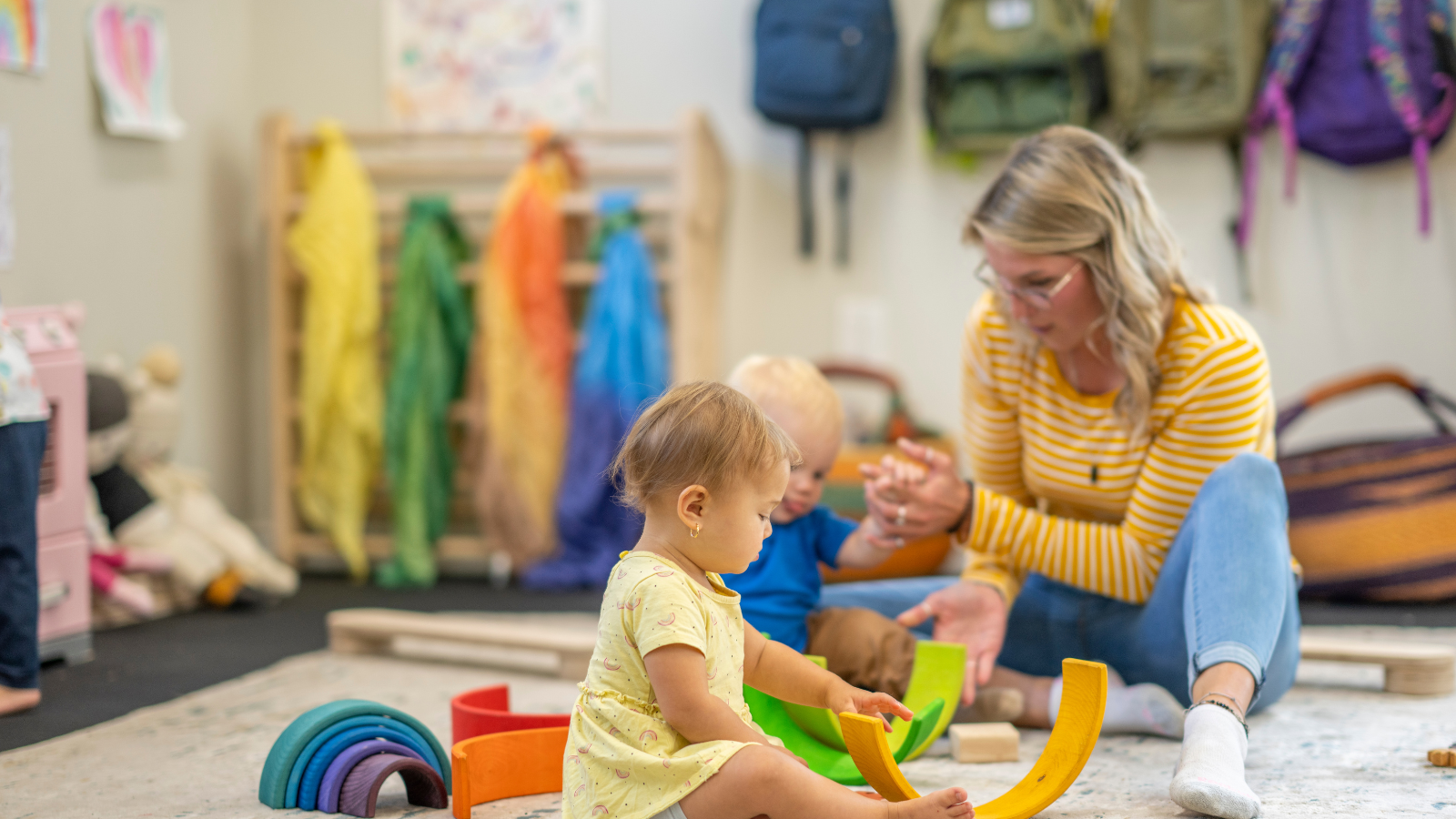When we talk about building a strong foundation, we’re not just referring to the physical structure of a home or building; we’re also talking about the essential groundwork we lay for our children during their early years. For preschoolers (ages 2-5), strong foundations are built through the development of early literacy and numeracy skills. These foundational skills are crucial for their future academic success and overall cognitive development.
We invite parents to schedule a tour of our Paramus Preschool to discover all that we provide as a premier preschool and daycare center. Our amenities include indoor and outdoor playgrounds, as well as a café offering healthy meals with fresh fruits and vegetables—all included in the tuition
What Makes a Strong Foundation for Preschoolers?
A strong foundation for preschoolers is built on the development of core skills that support learning, problem-solving, and effective communication. These include:
- Language and Communication Skills: The ability to understand and use language effectively.
- Cognitive Skills: The capacity for thinking, learning, and problem-solving.
- Social and Emotional Skills: The ability to interact with others, manage emotions, and develop empathy.
- Physical Development: Fine motor skills, such as holding a pencil or using scissors, and gross motor skills, like running or jumping.
For preschoolers, these foundational skills are best developed through age-appropriate activities that encourage exploration, creativity and play. A well-rounded approach ensures that children are not only ready for school but also equipped to handle life’s challenges with confidence.
Early Literacy and Numeracy Skills for Preschoolers
Early literacy and numeracy are at the heart of a strong educational foundation. These skills are the building blocks for reading, writing, and mathematical understanding. For preschoolers, developing these skills in a fun and engaging way is key to fostering a love for learning.
Early Literacy Skills
Early literacy involves more than just learning to read and write. It includes:
- Vocabulary: Expanding the number of words a child understands and uses.
- Phonological Awareness: Recognizing and playing with sounds in spoken language, such as rhyming.
- Print Awareness: Understanding that print carries meaning and knowing how to handle a book.
- Narrative Skills: The ability to describe events, tell stories, and follow a sequence.
Early Numeracy Skills
Early numeracy refers to the foundational mathematical concepts that children begin to understand, such as:
- Number Sense: Understanding numbers, their magnitude, and their relationships.
- Patterns: Recognizing and creating patterns, which is a precursor to algebraic thinking.
- Spatial Awareness: Understanding shapes, sizes, and the position of objects in space.
- Measurement: Grasping the concept of comparing and measuring objects.
10 Age-Appropriate Strategies and Activities for Developing Early Literacy and Numeracy Skills
- Storytime Sessions: Reading aloud to children helps develop vocabulary, narrative skills, and print awareness. Choose books with repetitive phrases and colourful illustrations to engage them.
- Sing Nursery Rhymes: Singing helps with phonological awareness by emphasizing the sounds and rhythms of language.
- Letter and Number Games: Play games that involve identifying letters and numbers, such as matching games or letter/number scavenger hunts.
- Counting Activities: Incorporate counting into everyday activities, such as counting steps, toys, or snacks, to build number sense.
- Shape Sorting: Provide children with various shapes to sort and categorize, which enhances their spatial awareness and understanding of patterns.
- Drawing and Coloring: Encourage drawing and colouring to develop fine motor skills and an understanding of shapes and patterns.
- Simple Puzzles: Puzzles promote problem-solving skills and spatial reasoning, which are critical components of early numeracy.
- Pretend Play: Set up scenarios where children use language and numbers in context, such as playing in the store or school.
- Interactive Apps and Games: Use educational apps that focus on letter recognition, counting, and basic math skills to reinforce learning interactively.
- Outdoor Exploration: Take learning outside by exploring nature, counting leaves, identifying shapes in the environment, and discussing what you see.
FAQ
Q: How early should I start teaching literacy and numeracy skills to my child? A: It’s never too early to start! Even before preschool, you can begin fostering these skills through play, reading, and everyday interactions.
Q: What if my child struggles with learning letters or numbers? A: Every child learns at their own pace. If your child is struggling, try incorporating learning into their interests or use a multisensory approach to make it more engaging.
Q: How can I support my child’s learning at home? A: Read with your child daily, involve them in simple counting activities, and use educational games and apps to make learning fun. Consistency and encouragement are key.
Q: What are the most important literacy and numeracy skills for preschoolers? A: For literacy, focus on vocabulary, phonological awareness, and print awareness. For numeracy, emphasize number sense, patterns, and spatial awareness.
Conclusion
Building strong foundations in early literacy and numeracy sets the stage for lifelong learning and success. By incorporating fun, age-appropriate activities into your child’s daily routine, you can help them develop the essential skills they need to thrive in school and beyond. Remember, the goal is not just to prepare them for kindergarten but to foster a love for learning that will last a lifetime. With the right foundation, your preschooler can build a bright and promising future.






